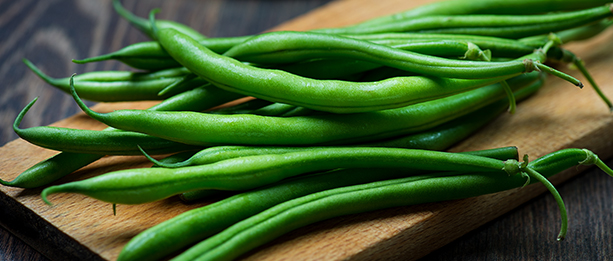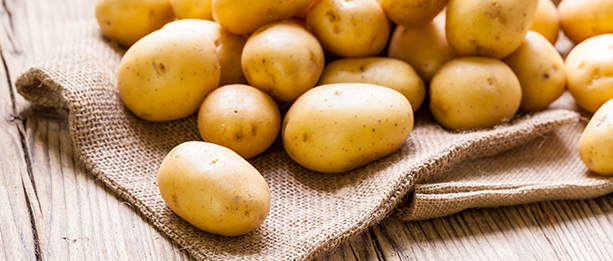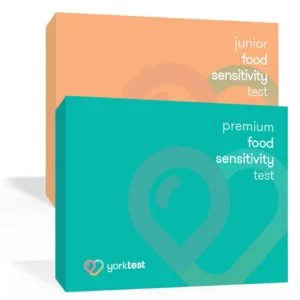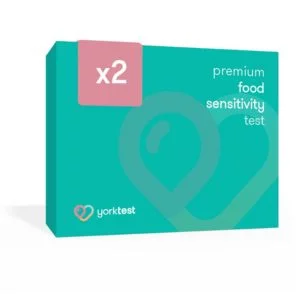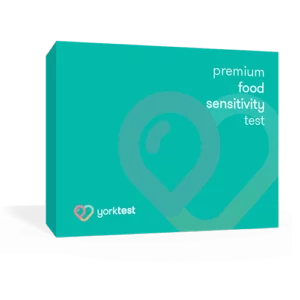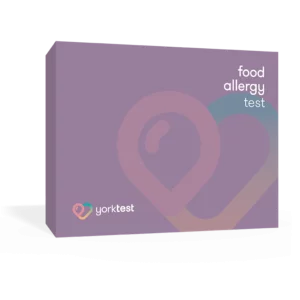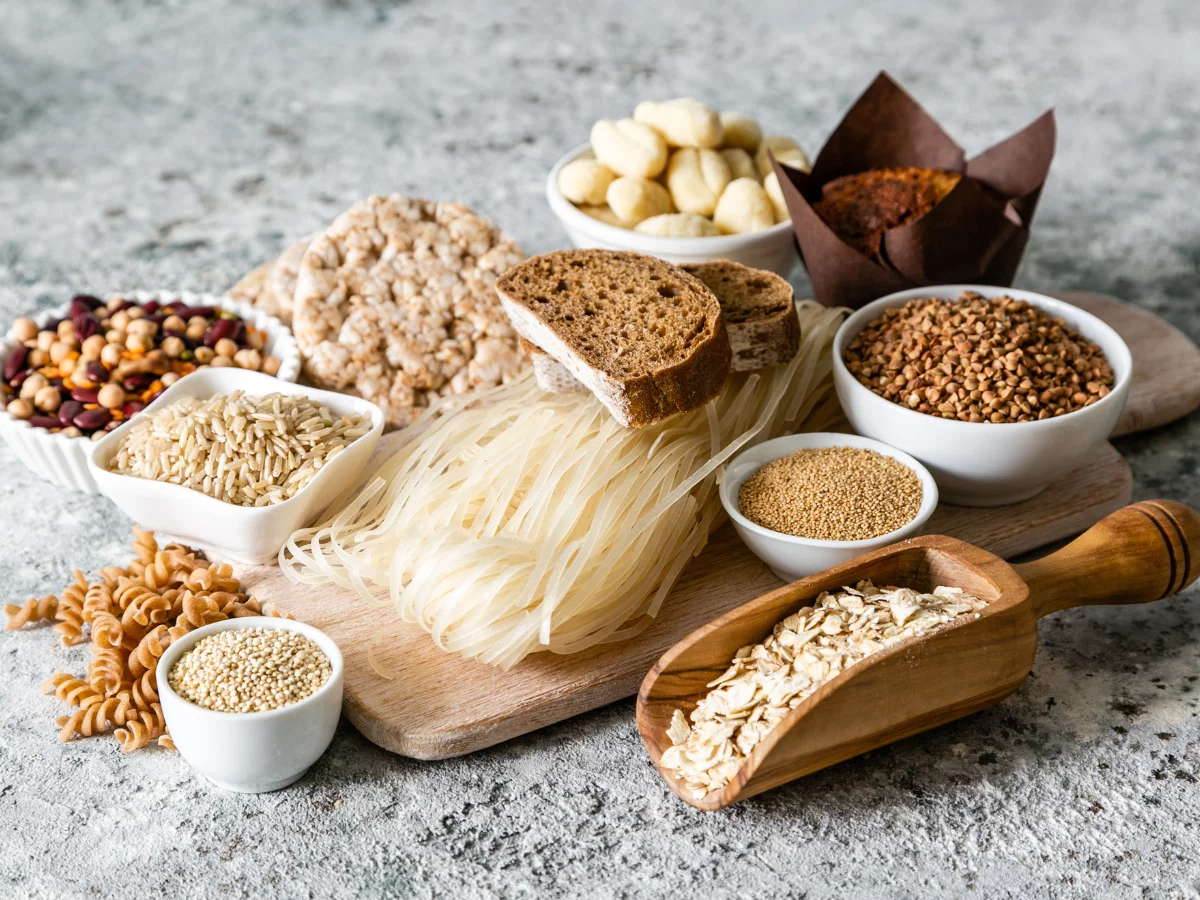We always advise you to eliminate problem foods – the ones that make you feel uncomfortable or just ‘don’t agree with you’, especially after finding out you might be intolerant to these foods. But what happens when these problem foods contain essential nutrients, that without, would lead to an unbalanced diet? What’s fascinating about food is that there are plenty of lesser-known sources of minerals, vitamins and protein which make up essential food groups and a healthy diet. We all know that oranges are packed full of Vitamin C to help growth and development. If you experience intolerance to oranges, and remove them from your diet you might be concerned it could lead to a Vitamin C deficiency. However, knowing that Vitamin C can also be found in red, orange and green peppers amongst other foods starts to solve the problem. The inspiration for this article came from some of the questions we received in our live Q&A in January when we received the following question:
I have an intolerance to eggs and yeast. I’m also lacking in calcium. Can you advise how to intake calcium and any advice if avoiding eggs can cause deficiency?
Understanding the need for such information, we’ve put together a list of foods, some might be surprising, that are packed full of essential nutrients so you know where to look for food alternatives should you discover a food intolerance.
Minerals
Calcium
Calcium helps to build strong bones and teeth, regulates muscle contractions, including heartbeat, and regulates our nervous and hormonal systems and blood pressure so it is a crucial part of the diet.
| Calcium | |
| Milk | Kale |
| Cheese | Broccoli |
| Almonds | Spinach |
| Sardines | Bony Fish |
Iron
This month the Daily Mail reported the rise, in fact, the emergence of a whole new industry, of alternative milks to help cater to a growing population reporting lactose or dairy intolerance – from almond to soy, rice to oats and hemp to coconut our supermarket shelves are bursting with milk alternatives that are still usually fortified with calcium and other vitamins. Whilst substitute foods can be great (especially if you miss having milk on your morning cornflakes) it’s important to know that calcium isn’t just contained in milk, cheese, and other dairy products but also in almonds and green, leafy vegetables. If you like sardines these, and other bony fish, are an excellent source as well.
| Iron | |
| Liver | Dried Fruit (Apricots) |
| Red Meat | Brown Rice |
| Beans | Fortified Breakfast Cereals |
| Nuts | Eggs |
| Watercress | Curly Kale |
| Spinach | Pumpkin Seeds |
An essential mineral in the diet which helps to enable red blood cells to carry oxygen around the body – a lack of iron in the diet can lead to anaemia. Good sources of iron include the following: liver, meat, beans, nuts, dried fruit, such as dried apricots, whole grains, such as brown rice, fortified breakfast cereals, soybean flour, most dark-green leafy vegetables, such as watercress, curly kale and of course, spinach!
Vitamins
Fat Soluble Vitamins (A, D, E and K)
These vitamins are contained in fatty and oily foods and are crucial for optimal health. If you are concerned that having an intolerance to these foods will reduce your intake of fat-soluble vitamins – have a look at some alternatives below:
Vitamin A
Why is Vitamin A important? It helps to strengthen the immune system, helps vision in dim light and keeps skin healthy. Vitamin A can be found in cheese, egg yolks, yoghurt, oily fish and liver – if you’re intolerant to dairy then Vitamin A intake can be complemented by also eating foods containing Beta-carotene found in yellow and green (leafy) vegetables such as spinach, as well as carrots, butternut squash and red peppers.
| Vitamin A | |
| Cheese | Egg Yolks |
| Liver | Yoghurt |
| Beta-carotene | |
| Spinach | Carrots |
| Pumpkin | Red Peppers |
Vitamin D
Vitamin D helps control calcium absorption for healthy bones and teeth as well as keeping the immune system strong and maintaining hormone balance. A lack of Vitamin D can lead to fragile bones, aches and pains. We get most of our Vitamin D intake from the sunlight on our skin, however, living in the UK this doesn’t happen very often! To supplement our sporadic summers, look for foods rich in Vitamin D, such as eggs, mushrooms and fish liver oils. Make sure to stock up on oily fish such as sardines and mackerel, especially during the winter months.
| Vitamin D | |
| Sunlight | Eggs |
| Sunflower Seeds | Mushrooms |
| Sardines | Mackerel |
Vitamin E
Whilst you might not hear about Vitamin E too often it is an essential nutrient for the body as it helps to maintain cell structure and as an antioxidant, it helps protect the body from ‘free radicals’. Present in spinach, corn and olive oil but also found in wheat germ (cereals and cereal products) vitamin E can be found in a wide variety of food groups that can be consumed as part of a usual diet.
| Vitamin E | |
| Spinach | Nuts/Seeds |
| Olive Oil | Wheat Germ (Cereals) |
Vitamin K
Vitamin K is considered the most important vitamin to help blood clot – ensuring we consume foods that contain such nutrients is therefore important. Vitamin K can be found in green, leafy vegetables such as spinach, watercress, green beans and broccoli as well as in cereals and, in small amounts, in meat and dairy.
| Vitamin K | |
| Spinach | Broccoli |
| Cereals | Liver |
| Dairy Products | Pork |
Water soluble vitamins
As water-soluble vitamins can’t be stored in the body we need to ensure they’re frequently replenished as they can so easily be lost through heat or being exposed to the air – hence why many dieticians and nutritional therapists promote the importance of steaming or grilling foods rather than boiling so that these nutrients aren’t lost. Because these vitamins pass through the body so frequently, you don’t have to worry about consuming too much Vitamin C at one time. Not enough however can lead to conditions such as low immunity, poor skin, gums and teeth, fatigue and ultimately if severe, scurvy.
Vitamin C
How many times have you been told when you’re poorly to tuck into some oranges? Vitamin C helps to protect cells and keep them healthy; a food intolerance to one of the most recognised Vitamin C rich foods might be considered a predicament. However, Vitamin C can also be found in raspberries, red and green peppers, strawberries, blackcurrants, broccoli, Brussels sprouts and even potatoes too.
| Vitamin C | |
| Oranges | Mango |
| Red and Green Peppers | Strawberries |
| Blackcurrants | Broccoli |
| Brussel Sprouts | Potatoes |
Vitamin B and Folic Acid (B9)
There are several B vitamins with different functions. It makes sense to get to grips with which foods contain what. Folic acid helps to form healthy red blood cells and reduces the risk of central nervous system defects and can be found in the following foods: Broccoli, Brussel sprouts, liver, spinach, asparagus, peas, chickpeas, brown rice and fortified breakfast avocado.
| Folic Acid | |
| Broccoli | Brussel Sprouts |
| Liver | Spinach |
| Asparagus | Peas |
| Chickpeas | Brown Rice |
| Beans | Avocado |
Carbohydrates
Carbohydrates (starchy food) are important for the body as they are a good source of energy. What is important, like any foods – is ensuring that carbohydrates are consumed in moderation and also ensuring we’re eating the right type of carbohydrates. To complicate matters there are three types of carbohydrates:
Sugar – occurs naturally in some foods (fruit, honey, milk containing lactose, and some vegetables)
Starch – Such as bread, rice, some vegetables such as potatoes and pasta, provide a slow and steady release of energy throughout the day – the Government advises that half of your calorie intake should come from starchy foods and vegetables alone.
Fibre – sources of fibre can come from fruit and vegetables left with their skin on.
Therefore just associating carbohydrates with pasta and bread isn’t correct – our body needs to consume carbs so look to include the above in your diet in order to fuel your body.
| Carbohydrates – Sugars | |
| Fruit | Honey |
| Milk (containing lactose) | |
| Carbohydrates – Starch | |
| Bread | Rice |
| Potatoes | Pasta |
| Carbohydrates – Fibre | |
| Fleshy part of fruit | Oats |
| Dried Beans/Peas | Vegetables with Skin Left On |
Protein
Protein is essential for the healthy growth of all our body tissues, muscles, internal organs and skin. Foods that contain all essential amino acids are described as ‘complete proteins’ and these include meat, dairy products, fish and eggs. Foods that contain some essential amino acids are called ‘incomplete proteins’ and include beans and other pulses, nuts, seeds and cereals. For those choosing to eliminate meat from their diet, either through the discovery of an intolerance or for personal or ethical reasons it’s important to include alternative sources of protein in your diet.
| Complete Proteins | |
| Red Meat (Beef, Lamb, Venison) | Dairy |
| Fish | Eggs |
| White Meat (Chicken, Turkey) | Quinoa |
| Incomplete Proteins | |
| Beans | Chickpeas |
| Nuts | Seeds |
| Cereals | |
Fats
For a long time, fats have had a bad reputation but in reality, a mix of different fats is essential for all aspects of good health, including optimal metabolism and good energy levels. Look to incorporate unsaturated fats from plant sources in your diet such as olives, olive oil, nut and coconut oil and avocado. Saturated fats such as meat, butter and cheese can also be enjoyed in moderation. Always choose natural before processed options, such as butter instead of margarine.
Fibre
Fibre is known to help with digestion but studies have also shown that it can have further health benefits such as reducing the risks of cancers, coronary heart disease and obesity.
At YorkTest, where approximately 60% of people come to us with digestion problems, ensuring you’re getting enough fibre in your diet can be important not only to healthy bowel movements but also to your overall digestive health. Having enough fibre in the diet can be important for those who suffer from digestive discomfort but we can appreciate this can be difficult if you discover you’re intolerant to common fibre-rich foods.
You can find fibre in lots of food like cereals, bread, pulses (beans, lentils, chickpeas), vegetables, fruit (dried), starchy food (potatoes) with their skins left on. Surprising sources of fibre include artichokes, peas, broccoli, raspberries and avocados! Fibre can however be problematic for some with digestive symptoms so it’s best to be careful about your consumption especially if you have IBS.
Finding out about food intolerances certainly doesn’t have to mean your body will not receive the recommended daily intake of nutrients and food groups necessary for a healthy lifestyle. All it means is that you need to discover alternative sources of nutrients once you find out your food intolerances.



